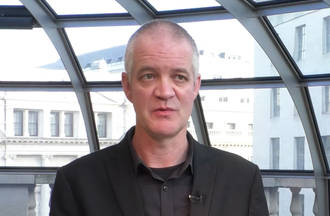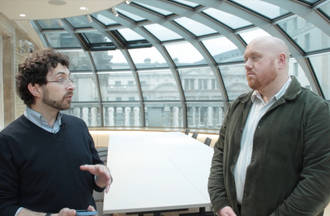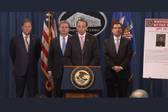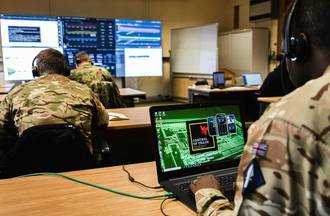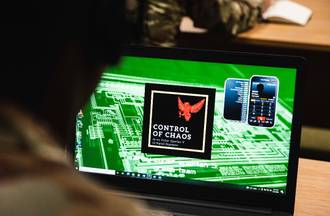Cyber Statecraft in an Era of Systemic Competition
A joint project with King’s College London and the University of Bath examining the concept of cyber statecraft.
Global cyber security and governance are at a critical juncture. Efforts to develop the rules, norms and values of cyberspace reflect shifting international power dynamics and express and sustain competing political visions of what and who cyber security is for.
Introduction
The centrality of the international dimension of cyber security is reflected in the UK Government's national strategies. The Integrated Review and subsequent National Cyber Strategy outline the UK's ambition to be a 'responsible, democratic cyber power'. Pillar 4 of the 2022 National Cyber Strategy, 'Global leadership', articulates the UK's aim to exert influence in international cyber security based on liberal democratic values. This is a bold ambition. To achieve it, the UK needs to set clear objectives and embrace 'cyber statecraft', understood generically as strategic approaches for securing the national interest in and through cyberspace, using all levers of national power and marshalling the private sector and civil society in a 'whole-of-society' effort.
However, questions and challenges persist about how to conduct cyber statecraft in an impactful way. Creating a more solid conceptual and empirical basis on cyber statecraft and cyber power is therefore essential for the UK’s efforts to create to shape global cyber security and governance.
Sponsors
- Defence Science and Technology Laboratory
- Engineering and Physical Sciences Research Council
- Research Institute for Sociotechnical Cyber Security
Aims and objectives
This project addresses significant gaps in conceptual and empirical knowledge about the nature and character of cyber power, the diverse practices of cyber statecraft, the types of actors that conduct cyber statecraft (including non-state actors like firms), and case studies of cyber statecraft in action.
Working with a diverse range of partners, the project team aims to inform policy and influence future research looking at best practices and competing approaches to cyber statecraft in an era of systemic competition.
The project focuses on the key themes of UK security strategy and supports the ambitions of UK Government and the funders.
We will consider the following:
- Theory, practice and evaluation of cyber statecraft.
- Middle-ground cyber competition and statecraft.
- Role of the private sector in cyber statecraft.
RUSI currently leads on research examining the capabilities and capacities of private companies in cybersecurity, how they convert these into influence, what underlying objectives orient their activities, and to what extent their activities contest or support cyber statecraft. This includes how private sector activities support or challenge government policy interventions, including the traditional role of the state in providing national security to its citizens.
Project outputs
View our latest explainers and event recordings on this project.
Explainers
Events and event recordings
Project team
James Sullivan
Director, Cyber and Tech
Cyber and Tech
Louise Marie Hurel
Research Fellow
Cyber and Tech
Jamie MacColl
Senior Research Fellow
Cyber and Tech
Joseph Jarnecki
Research Fellow
Cyber and Tech
Dr Gareth Mott
Research Fellow
Cyber and Tech


